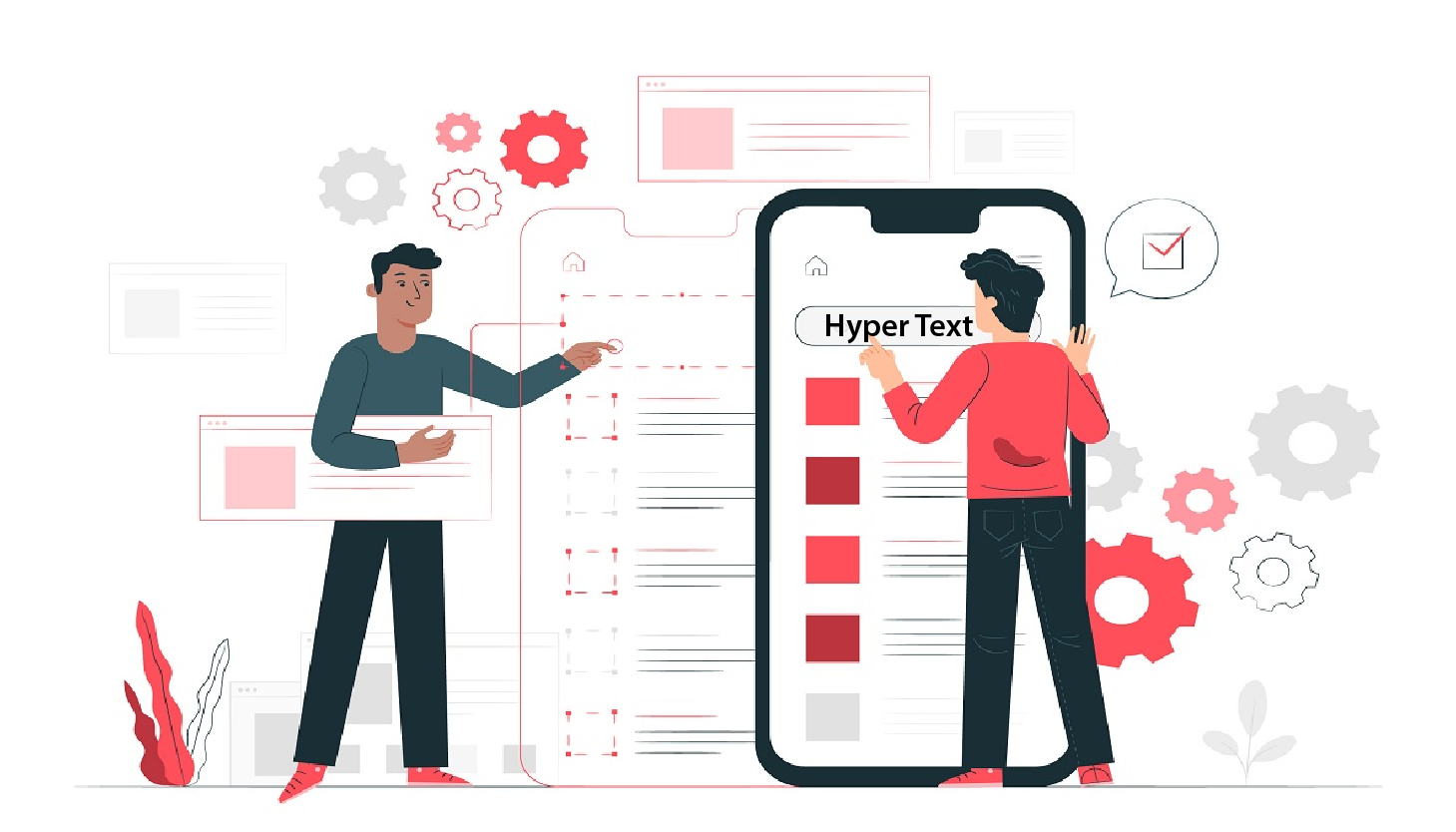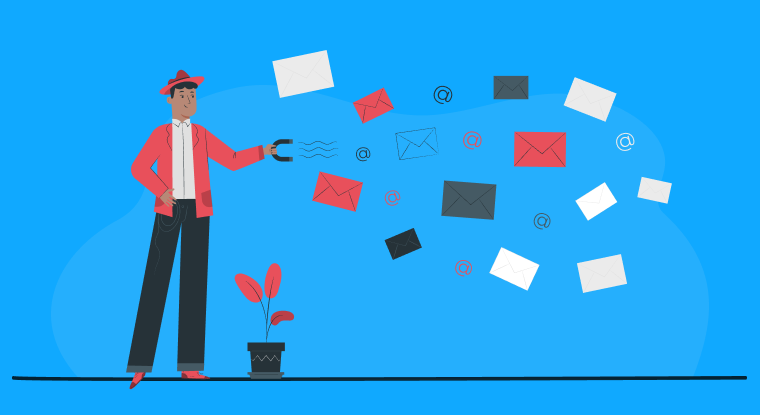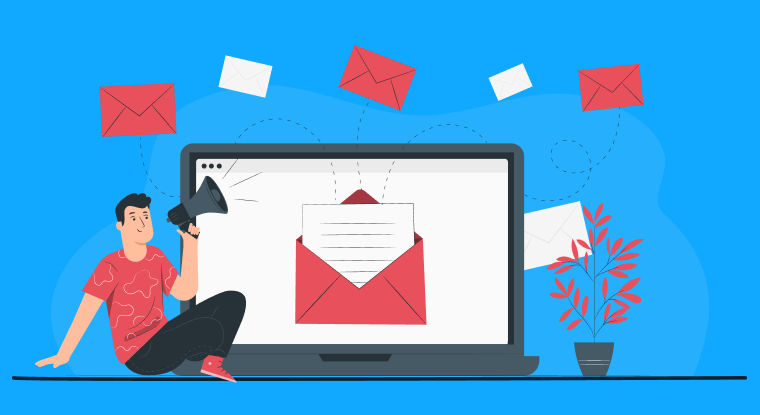Hyper-Personalized Marketing: Engaging More Audiences
Hyper-personalized marketing is the act of customizing a marketing message to match the needs, wants, and preferences of a specific person or group.

We live in a time when customers expect businesses to understand their wants and needs. In today's market, it is essential for businesses to not just meet customers' needs but to anticipate and exceed them. With the constant fluctuation in the marketplace and the competition becoming more advanced, organizations must adapt by using analytics and artificial intelligence (AI) to make the necessary changes. Chief marketing officers (CMOs) play a vital role in organizational success and are under immense pressure to modernize their marketing approach.
The challenges for a modern-day CMO are mainly around how to use technology to better reach and understand customers. This involves using data to create more personalized and relevant customer interactions and AI to automate and improve marketing processes.
Basically, What Is Hyper-Personalized Marketing?
Hyper-personalization marketing provides a more individualized experience for each customer by using all the real-time data collected about them. This allows brands to improve the customer experience by engaging with them more meaningfully.
Artificial Intelligence can help you create more targeted and personalized communications with your customers, leading to deeper relationships and more conversions. By analyzing your customer data, AI can help you determine the best ways to reach your customers, including when, where, and through which channels.
Hyper-personalized marketing is a step up from traditional personalized marketing and can be more successful. It takes more time to develop a hyper-personalized marketing strategy, but it can be done gradually. Recommendation engines can be a good place to start, followed by predicting customer preferences and customizing products and pricing.
The Differences between Regular Personalization and Hyper-Personalization
Most people prefer personalization over non-personalized content. This is because personalization shows that you are taking an interest in the person and not just trying to sell them something. Hyper-personalization takes this a step further by making the content even more relevant to the person.
In other words, regular personalization is when a company uses the information they know about a customer to make their marketing more relevant and personalized to that individual. This could be something as simple as addressing them by name in an email or using data to show them items that may be of interest to them on an online store.

With hyper-personalization, businesses use data they've collected on an individual to deliver a more personalized experience. This data can come from customer interactions with the company (behavioral data) or real-time information. By using this data, businesses can provide a more tailored experience unique to each customer.
Hyper-personalization makes use of advanced and complex data like:
- Active times
- Actual purchasing behavior
- Customer's affinity
- Customer's browsing activity
- Notifications that result in higher engagement
In addition to using data to deliver more relevant content, they also use AI and automation to provide a more personalized online experience. By understanding each customer's individual behavior and preferences, they can focus on creating highly customized campaigns that are more likely to succeed.
In general, personalization is effective for customer segmentation or when basing personas on customers. However, hyper-personalization takes this a step further by focusing on meeting the needs of each customer as an individual.
Hyper-Personalization Goes beyond Segmentation
Organizations are now turning to hyper-personalization to target customers at a more personal level. This method involves taking into account the minute differences between customers, which can allow for more tailored communications and offers. While this approach is relatively new, it has shown promise in terms of providing deeper levels of personalization.
In order to get the best return on investment and make your marketing efforts as effective as possible, you should use data to personalize your marketing at the individual level. This means creating unique content, discounts, and recommendations for each customer based on what you know about them. By taking this segment-of-one approach, you can make sure that you're always targeting the right people with the right messages through the most relevant channels.
This strategy also involves creating a very customized experience for each individual customer. This could be anything from recommendation engines to connecting online and offline sales channels. Doing this creates a deeper customer relationship and attracts new customers.

Hyper-Personalization Provides a More Individualized Experience
As customers move through their journey, brands should be looking for ways to interact more efficiently and make offers that are more likely to convert. By combining customer data with information from external sources, brands can engage with consumers and predict what they want before they have a chance to look at a competitor.
It can attract customers with personalized web pages and dynamic pricing and provide personalized services after the purchase. It uses the same platform and data to present one of a multitude of targeted offers based on who is viewing the offer.
Its campaign also uses Facebook data to target ads to specific customers. The ads had a high click-through rate and led to increased sales. Amazon is one company that uses recommendation engines to suggest products to customers. This campaign shows that personalization can be effective in marketing.
The Importance of Hyper-Personalization
Consumers now expect companies to offer them a personalized experience rather than a one-size-fits-all approach. In other words, they want companies to take into account their individual needs and preferences rather than treating them all the same. This shift has been driven by technological advances, which have made it possible for companies to target individual consumers more precisely.
The need for personalization in products and customer interactions comes from the citation of the customer's need to control and simplify their decision-making process. Customers feel more in control of their overall experience when companies make decisions based on their specific needs and preferences. This also makes it easier for customers to choose the products and brands they want.
Customers who feel the convenience and personal understanding of a brand are much more likely to remain loyal and keep spending. In fact, emotionally engaged customers spend twice as much as customers who are not engaged. Not to mention, these customers are also likely to recommend the brand to others. Therefore, it's beneficial for organizations to focus on creating emotionally engaging customer experiences.

Brands are losing customers because they are not personalizing their products and services to meet the customer's needs. Customers expect brands to use the data they share to understand their needs and provide a more tailored shopping experience. By ignoring personalization, brands risk higher customer fallout rates, lower return on advertising investment, reduced customer loyalty, fewer impulse purchases, and higher product returns.
The Challenges and Opportunities That CMOs Face
1. The Consumers' Expectations Are Shifting
In order to succeed in today's business landscape, it is becoming increasingly important to provide a superior customer experience. This is because customers now have a lot of choices, and companies need to stand out in order to compete. Customer experience is, therefore, a key part of any business strategy. However, to meet customer expectations, brands must use data and analytics to better understand their customers and harness the power of AI to create more personalized experiences.
2. The Competition Is More Advanced
In today's business world, the traditional models are no longer as effective as they used to be. With new companies constantly entering the market and offering lower prices or more innovative experiences, it's become difficult for older companies to keep up. Leading companies such as Amazon, Facebook, and Google are using customer databases and personalized recommendations to stay ahead of the competition.
Digital marketing is also becoming more competitive, which is resulting in increased spending in an attempt to reach customers. However, with AI-powered marketing, companies can make a more meaningful impression on their customers, even if they don't have much exposure to the brand. This can help create stronger bonds and ultimately lead to success in the marketplace.
3. The Data Is Increasingly More Accessible
In the past, companies collected customer data using outdated methods that didn't provide a complete picture of the customer. However, now that we have more digitized data and advanced technologies, we can use that data to understand customer preferences and behaviors better. AI-powered marketing technology can help us make decisions about the best way to interact with each customer in real-time. To be successful in the future, companies need to use available data and AI technology to offer hyper-personalized experiences to their customers.

4. AI Can Drive Customer Acquisitions
In the past, marketers focused on customer acquisition, but with the added competition and changing customer behaviors, they have shifted their focus to customer retention and loyalty. However, if you want to expand your customer base and meet your growth goals, you need to focus on acquiring new customers. AI-powered marketing technologies can help you identify potential customers, analyze customer data, and create targeted marketing campaigns.
Conclusion
Overall, organizations that want to be successful in today's business world should use data, advanced analytics, and AI technology to create a personalized marketing strategy for each customer. This will give them a competitive edge and help them to understand their customers better. Additionally, by using these tools, they can automate tasks such as customer segmentation and targeted marketing campaigns - freeing up time to focus on other areas of the business.
If you are looking for a business that provides one of the best hyper-personalization platforms in the industry today, look no further than our services here at Personalize.cc. Our platform allows you to create interactive, personalized images and videos within minutes. Call us today for more information about our platform and its many features.
What Makes the Best Personalization Software?
Join the SaaS Revolution
-
All-in-One Suite of 50 apps
-
Unbelievable pricing - â¹999/user
-
24/5 Chat, Phone and Email Support
Infinity Suite
Tags
